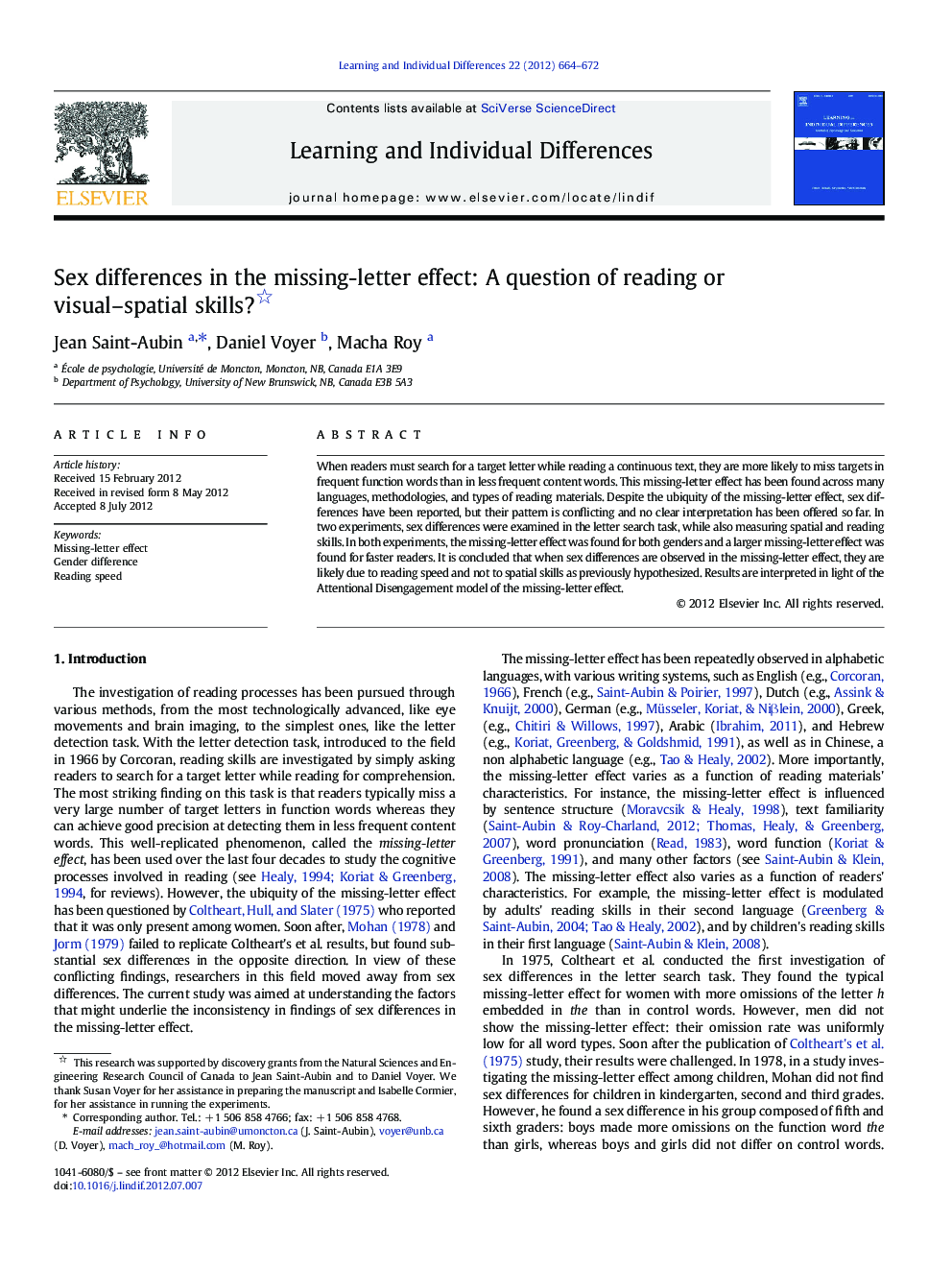| کد مقاله | کد نشریه | سال انتشار | مقاله انگلیسی | نسخه تمام متن |
|---|---|---|---|---|
| 364849 | 621095 | 2012 | 9 صفحه PDF | دانلود رایگان |

When readers must search for a target letter while reading a continuous text, they are more likely to miss targets in frequent function words than in less frequent content words. This missing-letter effect has been found across many languages, methodologies, and types of reading materials. Despite the ubiquity of the missing-letter effect, sex differences have been reported, but their pattern is conflicting and no clear interpretation has been offered so far. In two experiments, sex differences were examined in the letter search task, while also measuring spatial and reading skills. In both experiments, the missing-letter effect was found for both genders and a larger missing-letter effect was found for faster readers. It is concluded that when sex differences are observed in the missing-letter effect, they are likely due to reading speed and not to spatial skills as previously hypothesized. Results are interpreted in light of the Attentional Disengagement model of the missing-letter effect.
► We investigated the causes of sex differences on the missing-letter effect.
► We found that reading speed is the key factor.
► This is the first study of individual differences on the missing-letter effect.
► Results have important theoretical implications for the field.
Journal: Learning and Individual Differences - Volume 22, Issue 6, December 2012, Pages 664–672